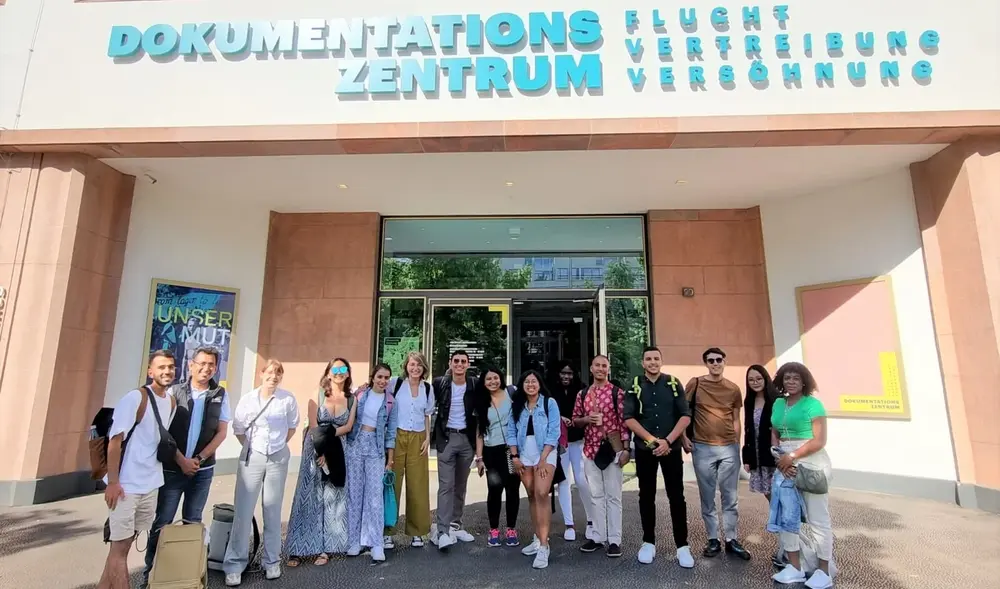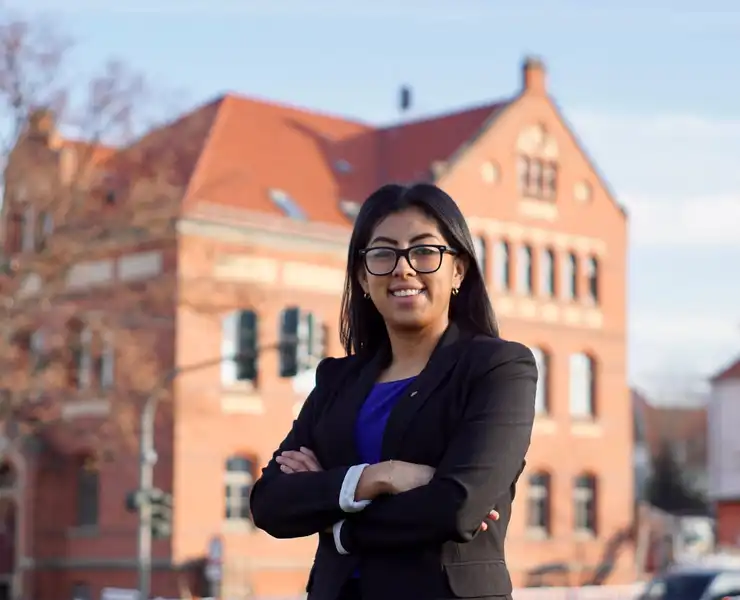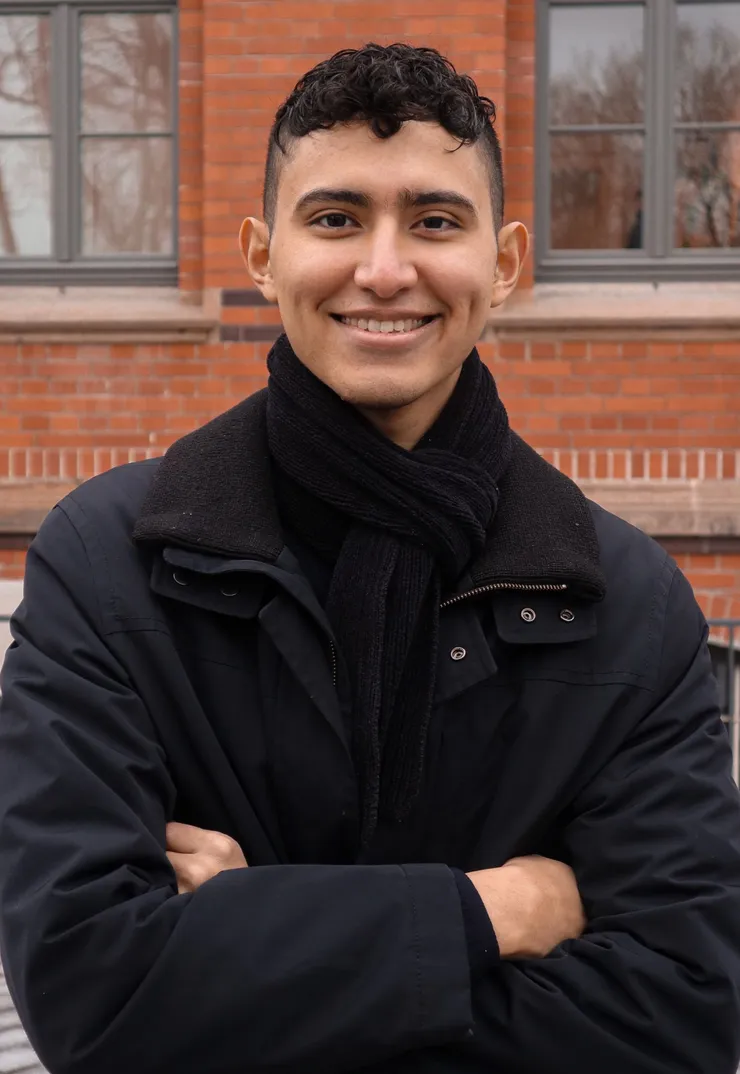Berlin in the eyes of refugees

On July 11 and 12, students from the "Forced Migration Policies in Comparative Perspective" and "Introduction to Migration Policy" courses, taught by Dr Pau Palop-García, travelled to Berlin. The trip aimed to show how knowledge from the classes can be applied to real life. For this purpose, we visited different places, focusing on various issues related to migration. All of them were very interesting and created enriching and insightful conversations. We touched on sensitive and controversial topics that have been avoided, such as East German refugees or Germans' expulsion after World War II.
Our journey started at the German History Museum, with a guided tour we explored the exhibition on citizenship in Germany, France, and Poland since 1789. This exhibition allowed us to look into the different migration policies adopted by these three countries in the last two centuries and compare them with their current stances. We discussed what citizenship means, the related controversies, and how its definition has changed over the years. While it is true that citizenship means being a member of a country, for others, it means exclusion. Not having this status in many cases limits access to services and political rights. The exhibition also remarked on fascinating topics like the different citizenship statuses of women and ethnic minorities.
Afterwards, we had a walking tour with Refugee Voice Tours, an organization made up of activists and refugees living in Berlin, who seek to inform the public about why so many people have been forced to flee their countries and seek refuge in Europe1. We learned more about the current conflict in Syria, how it escalated over the years, and got to hear a refugee's perspective. We visited several landmarks that served as reference points of discussion and related to our guide's story. Among these landmarks, we visited the Berlin Wall, Checkpoint Charlie, and finished in Gendarmenmarkt. This tour was particularly insightful because we could learn from someone, who experienced a crisis and, for that reason, had to leave his country and come to Germany to find a better life.
On the second day, we visited the Marienfelde Refugee Center Museum, which is dedicated to the history of flight in divided Germany. This center offered a memorable experience; we learned about the division of Germany after World War II and, more specifically, about the division of Berlin. Our guide also showed us the process to get asylum status in West Germany, which was not only complicated, but also a political decision. What is interesting about this museum is that it embodies the past and present of the situation of migration, since the building used to be a reception center for refugees and emigrants from the German Democratic Republic (GDR)2. Nowadays, it serves as temporary housing for refugees.
We went to the Documentation Center for Displacement, Expulsion, and Reconciliation to end the trip. It focuses on forced migrations for political, ethnic, and religious reasons, especially in the 20th century, not only in Europe but also in other parts of the world3. This museum is unlike any other in Berlin. From what we learned, this center started as a controversy, since its original purpose was to commemorate Germans who were forcefully displaced all over the world after the war. This center is now more focused on displacement as a worldwide phenomenon and the different factors that trigger it. We got to see fascinating artifacts and hear true stories of refugees and their journey to Europe.
This trip broadened our perspective on migration, and allowed us to go from theory to practice, while learning more about how history shape policies in Germany, and other parts of the globe.
2 www.stiftung-berliner-mauer.de/en/marienfelde-refugee-center/historical-site/museum
3 www.flucht-vertreibung-versoehnung.de/en/kennenlernen/dokumentationszentrum

Micaela Lincango is an alumna of the Willy Brandt School of Public Policy. She comes from Ecuador and holds a bachelor's in International Relations with a minor in Political Science. She focuses on migration studies. She has experience working with international organizations such as the World Bank and the Inter-American Development Bank. Her passion is social work, and for that reason, she has been a volunteer in different organizations, such as AIESEC and TECHO, for more than four years.

Andrés Alberto Gallo is a Communication Sciences major and currently enrolled in the Willy Brandt School’s MPP program. As a professional, he has worked in the non-profit sector in his home country, Honduras, and is now pursuing a career in Migration and other related areas.
~ The views represented in this blog post do not necessarily represent those of the Brandt School. ~